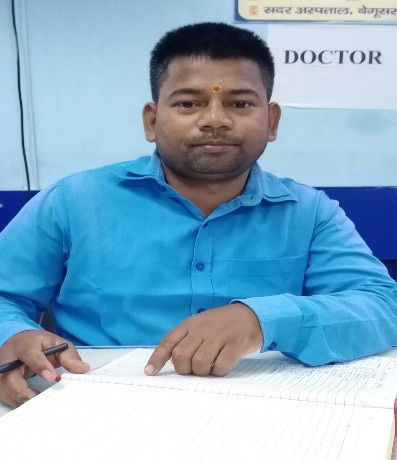
Every time we hear the words care, compassion, or healing, our minds instinctively paint the image of a woman—maybe a nurse, a mother, or a sister. It's what society has long taught us: that nurturing is a woman’s nature, while a man’s role is to earn, decide, and lead. But Devendra Kumar, ICU In-charge, Sadar Hospital, Begusarai never quite fit into that mould.
Born into a modest family in Bihar, Devendra grew up watching his parents struggle, yet hold on to the value of education. From an early age, he knew he wanted to support his family, but on his terms.
“I didn’t just want to earn. I wanted to do something meaningful, something that touched people’s lives,” Devendra recalls.
While most boys around him dreamed of becoming engineers, police officers, or government clerks, Devendra made a different choice. He chose nursing. A choice that raised more than a few eyebrows.
“People would say, ‘Nursing is for women.’ But I never believed that compassion had a gender,” he shares, with a quiet smile.
In Delhi’s Kailash Hospital, he worked exhausting 12-hour shifts, surrounded by critical cases and blinking monitors. But more than machines, Devendra learned to read the faces of pain, fear, and hope. He learned that healing didn’t just come from medicine, but from presence. From listening. From simply being there.
“In the ICU, machines keep bodies alive. But empathy keeps souls breathing,” he says.
In 2014, Devendra joined the government health system. Today, as ICU In-charge at Sadar Hospital, Begusarai, he not only manages life-saving systems but also leads with a rare emotional intelligence. He treats his female colleagues as equals, shares responsibilities fairly, and models what gender-equal care can look like in action.
For him, care isn’t a woman’s job—it’s a human responsibility.
TAGS
SHARE





